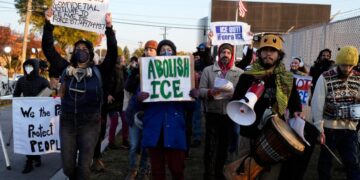Contemplations on the new Cook County Soda Tax
Cook County, Illinois – the home of America’s fourth largest city – Chicago, is, like many metro areas, broke. So, as many jurisdictions do when broke, they imagine a need to raise tax rates.
The one they have chosen for July 1, 2017 is a soda tax, in addition to any applicable sales tax, which in Illinois can be as high as ten percent ad valorem already. This new “soda tax” is not just on soda, but on any beverage that is sweetened with either sugar or artificial sweetener (so it applies to both regular drinks and diet drinks), from soda pop to children’s juice boxes, from bottled iced teas to sports drinks. And the price will not be ad valorum (a percentage of the price) as we’re accustomed; it’s a penny per ounce.
So if you buy a package of 10 x 6.75oz juice boxes for your children’s lunches, there’s another 67.5 cents for the county on top of the $2.00 for the juice. If you buy a large Coke or Diet Coke for a dollar at McDonald’s or some other restaurant that 32oz drink alone will add another 32 cents to the bill. And if you buy a 24-can case of pop at the grocery store, which usually costs between six and nine dollars around here, that’s another $2.88 in taxes for that case.
If you’ve been doing the math in your head during these past few lines, you’ve begun to realize that this “soda tax” is typically anywhere from a 30% to 50% tax rate – the kind of crippling, confiscatory tax rate that protectionist governments propose as punitive tariffs against undesirable imports, when they want to destroy an import market. But the Cook County Board has inflicted this tax on ourselves – on the very grocery stores, restaurants, convenience stores and fast food places where we all buy our drinks, either alone or with meals.
Why? Because they claim to need revenue, and because they think that by attaching this modern example of highway robbery to a sweetened product of which some dietitians disapprove, they will be lauded for it.
They are mistaken.
History and Its Challenges
Both Chicago and Cook County grew a great deal, as one would expect, in their first hundred years, but something changed by the late 1950s.
As they grew, both Chicago and Cook County had to build government services – roads, police, fire stations, schools, parks, libraries – to accommodate this growth. But the problem with such government projects is that, once you build to accommodate a population, you must draw it down when the population plummets, and that’s hard to do.
Illinois’ greatest politician, the late Ronald Reagan, once said that “the nearest thing to eternal life we will ever see on this earth is a government program.” And sure enough, we’ve seen this problem dooming Illinois’ budgets for generations.
When Chicago reached its population peak of 3.5 million in the early 1950s, it built up to deliver the public service needs of such a world-class city… but Chicago has bled a million people since then (literally as well as numerically), and is down to only 2.5 million today.
The city should require two-sevenths less in services, but it has only increased its services, as it can’t bear to close schools and police stations, can’t reduce its roads or its water and sewer delivery systems, can’t bring itself to fire its city bureaucrats. You can’t fire the alderman’s spouse or cousin without bringing the hellfire of the party on your head; you can’t fire the committeeman’s nephew or niece without losing your own job.
Since part of Chicago’s reduction fed the county, at first, the County’s numeric peak occurred later, but today it’s in the same boat as Chicago. Cook County was only at 4.5 million when Chicago was at 3.5 million in the early 1950s; Cook hit its peak 20 years later, reaching 5.5 million in 1970 when flight from Chicago to the near (Cook) suburbs was at its maximum.
But that flight continued over the years, and today, Cook is down just a bit, to 5.2 million or thereabouts. So it’s been roughly stable in population for about 50 years, even though there’s been considerable movement within it borders in that time, as the city has emptied and the suburbs have grown.
The difference between their situations is stark though. Cook doesn’t have the huge brick-and-mortar obligations of a city. Cook County doesn’t have to worry about closing schools, fire stations and police stations. It maintains a law enforcement force (the sheriff and his deputies), a number of roads, a court system and jail, the board of elections, and a huge string of public parks, but these shouldn’t have the skyrocketing costs that Chicago’s infrastructure requires. What then is the challenge?
Cook County has chosen – it’s not mandated in any way, but it has chosen – to be a welfare state, in healthcare, for the poor of Cook County (and for the poor of any other place on earth who feel like moving here). Cook County operates a hospital system (why, when the private sector provides hospitals?); half its spending is on the Cook County Health and Hospitals System.
You can’t just privatize it in a day, but you could have never started it in the first place. Cook County’s budget isn’t full of hundreds of ridiculous expenditures; if you study it, hoping to find idiotic expenses that can easily be slashed, you’ll come away with little low-hanging fruit.
The costs of Cook County, rather, are high because of what Cook County, the City of Chicago, and the State of Illinois have chosen to do for over half a century: to tolerate crime and to invite in illegal aliens who can’t support themselves, which has driven away the manufacturing and business opportunities whose jobs and tax revenues were needed to fund such generosity.
Every killer who doesn’t get the chair creates an expense for the city, county and state. Every gang that scares away tourists, every mugger who ruins a neighborhood, every car thief who raises our auto insurance rates, every welfare program that encourages the importation of unemployable foreign refugees… all these have created the massive cost burden on local government that cause our annual budget shortfalls.
And on top of all that, the city, county and state have all made pension promises that they couldn’t keep, to all the employees they’ve hired over all these decades, dooming the state to a status of junk bonds and high taxes, driving people away at a record clip.
Some 95,000 people fled Illinois in 2016 alone, and the ones who fled weren’t the ones we need to leave!
The time has come to revoke our welfare state status, to stop paying the way for those who will not work, for those will not obey the law, for those who insist on making life worse for the rest of us.
The time has come to end our Sanctuary City status, and to start executing convicted killers, muggers, drug dealers and violent rapists. We cannot hope to invite desirable new taxpayers in until we purge the city of the lawbreakers who have made it so inhospitable for half a century, landing us in the situation we’re in today.
The Effects of Confiscatory Taxation
Illinois is already among the highest-taxed states in America. Such lists will always vary, as different taxes hit different groups in different ways, but in the end, Illinois jockeys for the title with such tax hells as New York, California, and New Jersey. In Cook County, the combination of property taxes, sales taxes, and state income taxes, along with the various fees that needle the individual and cripple the small business, puts us smack on the top of the list.
In the 1970s, the groundbreaking economist Arthur Laffer had an idea while dining at a restaurant, and scribbled it on a napkin so he’d remember. The Laffer Curve has since become the single most logical and best-remembered economic theory in the field; the simple idea that tax rates only raise revenue up to a certain point, beyond which the high tax rates become destructive, driving away business and causing an actual reduction in revenue rather than the desired increase.
When Dr. Laffer had the idea in the 1970s, it was used primarily in national economic debates, but it’s just as accurate at the state or local level.
We’ve witnessed example after example in recent decades of a luxury tax killing the boat industry, a city income tax causing wealthy New Yorkers to move away, a crippling entertainment tax killing convention business at once popular conference hubs.
We’ve even seen it here in Cook County before, as high cigarette taxes drove Illinois smokers across the border to Indiana to purchase their smokes.
But they don’t learn. So they are implementing a simply outrageous tax, one that sounds minor – just a penny an ounce! – until you do the math. And, like the national Democrats, they are counting on people never doing the math.
But they will. People WILL do the math, and quickly.
- How long will it take to realize that another $2.88 per 24-can case of pop makes it worthwhile to drive to the next county to buy your groceries?
- How long will it take to realize that if a family of five dines at a restaurant on this side of the county line, the soda taxes alone will add several dollars to the bill?
- How long will it take to realize that if your commute takes you through both Lake and Cook, or between Lake and DuPage, or between Lake and Will, then you should stop at the fast food place, or the grocery store, or the restaurant on the non-Cook half of your commute, not the Cook half?
The effect of this tax will be stark, and immediate, as business plummets in grocery stores, restaurants, fast food establishments, even 7-11s and gas stations.
Think about it – if you just want gas, go to the one with the cheapest gas. But if you want to buy a slurpee or a 20oz bottle of pop when you fill up, you won’t even start checking the pump prices until you’re out of Cook County.
People choose between Mariano’s and Jewel, between Costco and Sam’s, between Burger King and Wendy’s, based on saving a couple of dollars on this or that item. When a single 24-case of pop makes a difference of $2.88 alone, what do you think will happen to Cook County’s already-suffering environment?
Goodbye, cashier and bagger jobs.
Goodbye, stockboy jobs.
Goodbye, bartender and waitress jobs.
Goodbye, drive-through and fast food register jobs.
Just Goodbye, Cook County Retail and Hospitality businesses. Goodbye.
Copyright 2017 John F. Di Leo
John F. Di Leo is a Chicagoland-based writer, international trade lecturer, Customs broker and actor. He lives in Cook and works in DuPage, and his family has already identified where they will be shopping for groceries and going out to dinner from July 1 onward. It won’t be in Cook.
Permission is hereby granted to forward freely, provided it is uncut and the IR URL and byline are included.







